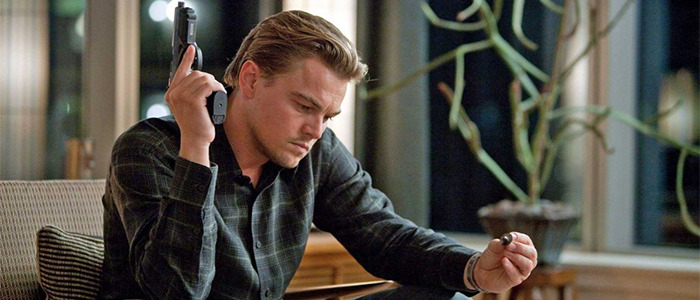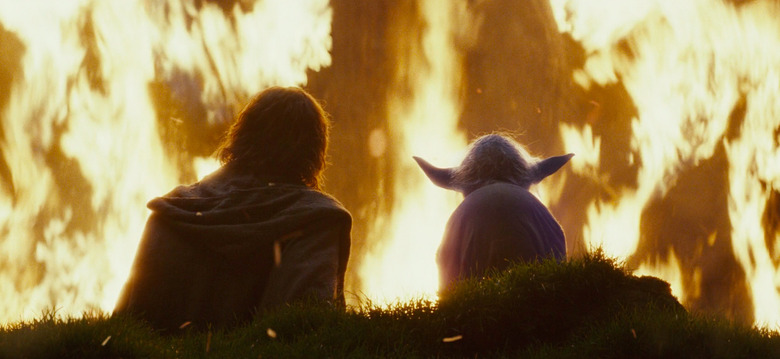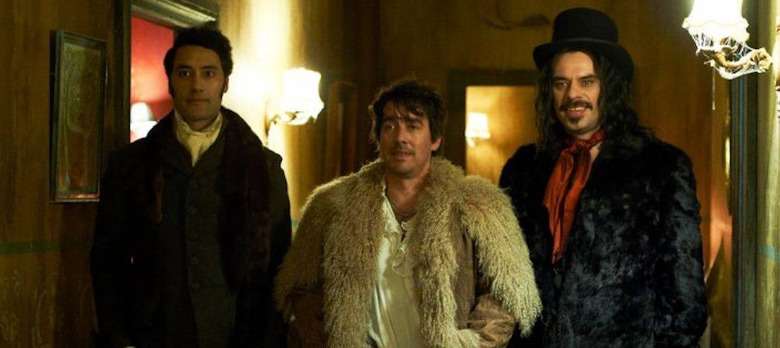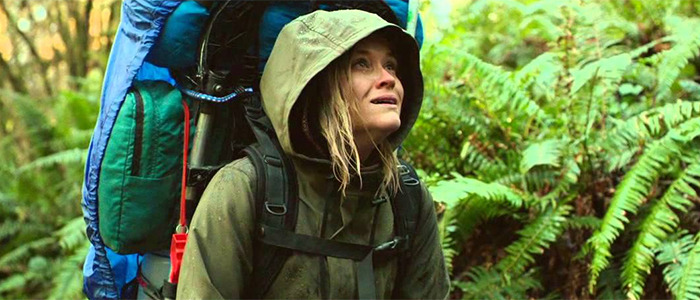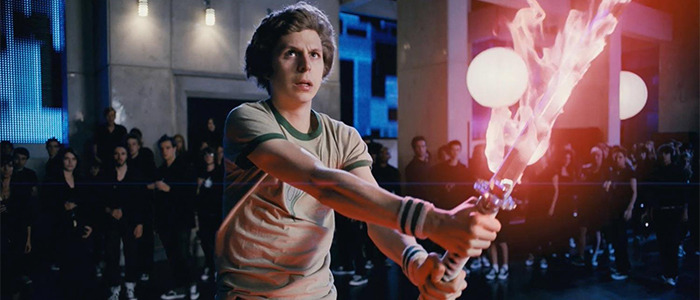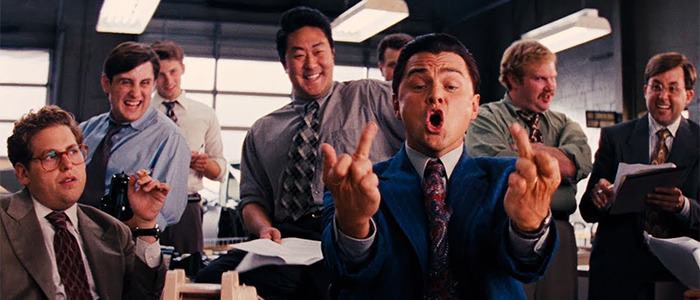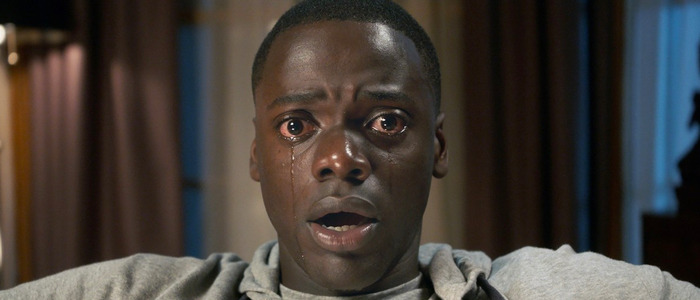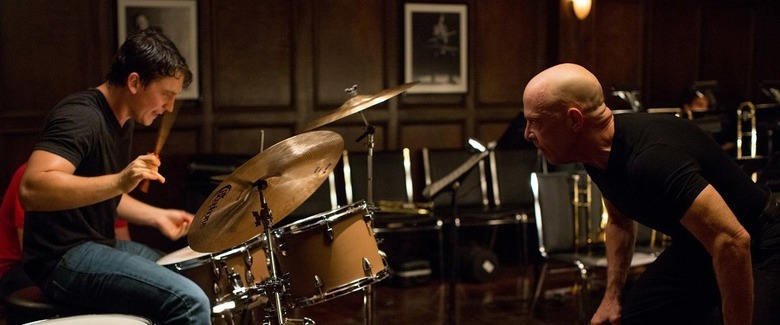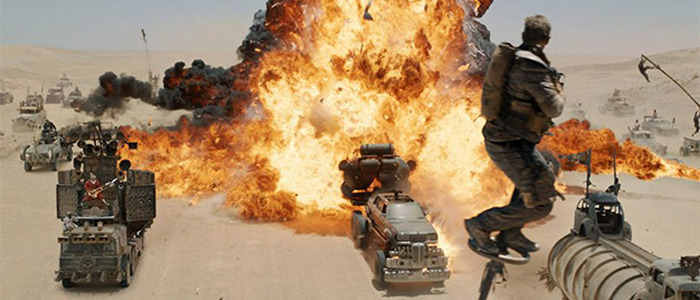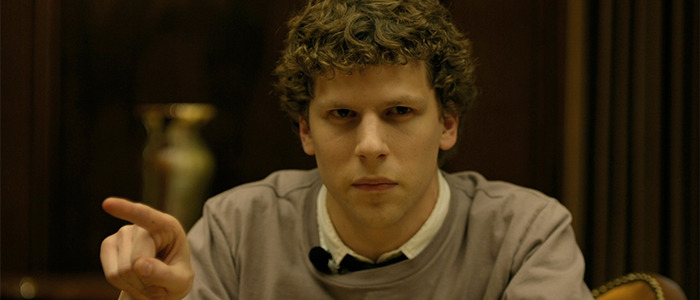Ethan Anderton's Top 10 Movies Of The Decade
(This article is part of our Best of the Decade series.)
The 2010s will mark the decade when cinema as we know it started changing drastically. The movies themselves aren't really changing, but the manner in which we get to see them is in the middle of a drastic overhaul. In some ways, it's easier than ever to watch a movie. But along with that, it's also gotten harder for movies to find their audience, let alone get made. Even so, the 2010s were full of movies that will stick with us for years to come, and below you can find my own top ten movies of the decade.
10. Inception
Heist movies are a dime a dozen. But director Christopher Nolan gave audiences something different in 2010 when he dared to venture inside people's dreams in order to investigate their dreams and steal ideas from their subconscious. Like the posters indicated in the summer of 2010, "Your Mind Is The Scene of the Crime." One could argue that Eternal Sunshine of the Spotless Mind got here first, but Nolan brings his own upscale style and intrigue to the proceedings for a movie that is easily one of the most original action thrillers of not just the decade, but the century. With mind-bending imagery, a pulsing score from Hans Zimmer that would be imitated in trailers for years to come, and an impeccable ensemble cast surrounding Leonardo DiCaprio, it's hard to deny that Inception is so brilliant that Nolan probably plucked it in a real life mind heist. How would we ever know?
9. Star Wars: The Last Jedi
Star Wars has been part of my life since I was in elementary school. The double whammy of the resurgence of action figures and the release of the Special Editions of the original trilogy made me a superfan, and since then, I've paid careful attention to all things Star Wars. But the release of the prequels made it hard to stay in love with the franchise as time went on. Thankfully, the sequel trilogy reinvigorated the franchise, and director Rian Johnson came along to inject something completely new into the franchise that relied a little too much on nostalgia for a comeback in The Force Awakens, albeit in a massively entertaining way.
With Star Wars: The Last Jedi, Rian Johnson brings the franchise into the future by trying to kill the past. He's not disrespecting the franchise, but evolving it. He's taking what worked well before and like any good storyteller, expanding upon it by taking it in new and exciting directions. He knows that the questions driving The Force Awakens aren't as important as we think. The new characters at the center of this sequel trilogy can grow without relying on the same formula that came before. Kylo Ren doesn't need a mask with a voice modulator to be as menacing as Darth Vader, and Rey doesn't have to be the chosen one in order to be the next Jedi hero. Star Wars may be set a long time ago in a galaxy far, far away, but that doesn't mean it has to be old-fashioned, and that's what makes The Last Jedi one of the decades best cinematic achievements.
8. What We Do in the Shadows
When it comes to counting down the best movies, whether it's in a given year or an entire decade, comedy often gets sadly overlooked. But in my opinion, it's significantly harder to make someone laugh than it is to make them cry. Even more challenging is to do it in a medium that isn't just a series of gags and one-liners. That's what makes What We Do in the Shadows such a crowning achievement for directors Taika Waititi and Jemaine Clement, who previously collaborated on the HBO folk music comedy series Flight of the Conchords.
What We Do in the Shadows achieves greatness against all odds. In 2014, the movie arrives after the vampire craze has run its course and mockumentary comedy has seemingly reached pitch perfect levels in The Office and Parks and Recreation. But Clement and Waititi bring their more quirky sense of humor from New Zealand to the table, blending gothic style with contemporary comedic sensibilities with a mix of clever satire, satisfying slapstick, and dry one-liners. It helps that Clement and Waititi, along with Jonathan Brugh, play the vampire roommates at the center of this hilarious and occasionally horrific tale of friendship, that also brings with it some smart, subtle social commentary about prejudice against different races, sexual orientations, or any kind of minority. This is the perfect example of a comedy being much more than just jokes on the screen.
7. Wild
Released in 2014, Jean-Marc Vallée's adaptation of Cheryl Strayed's memoir garnered attention during awards season mostly because of the strong performances by Reese Witherspoon in the lead, and Laura Dern as a supporting star. Both were nominated for their performances at the Oscars, not to mention countless other critics circle and voting bodies in Hollywood. But I'm baffled by the fact that the film itself didn't receive more praise and accolades that year, and it's even more disappointing that audiences didn't come back around to it before the end of the decade.
Wild tells the story of Cheryl Strayed, played by Reese Witherspoon, a young woman with her entire future ahead of her, but her life takes a sour turn when her mother Bobbi (Laura Dern) suddenly gets diagnosed with cancer and quickly passes away. Her remorse leads her to drugs, eventually an addiction and depression, prompting her to sleep around recklessly, causing her marriage to crumble. That's when an unexpected pregnancy finally pushes her to tackle 1,100 miles of the Pacific Crest Trail, all in order to work through her demons and find the woman that Strayed's mother raised her to be.
The story unfolds non-chronologically, flashing back and forth between Strayed's hike and everything that led to it. She's reliving every mistake she ever made, every moment that pushed her to the brink. It seems like she's punishing herself. But it's this journey of self-discovery that allows her to accept not only the woman she was, no matter how flawed, but also realize that she wouldn't be able to discover who she really is without the mistakes she made. It's a lesson that can be difficult to learn, even when you're made aware of it. And Wild works not only as a compelling, personal story, but maybe as something therapeutic in our own lives.
6. Scott Pilgrim vs the World
Edgar Wright made a name for himself with Shaun of the Dead, a comedic approach to zombies with a big dose of heart and style. He followed it up with another send-up of genre filmmaking with Hot Fuzz, which sort of lampoons action flicks like Point Break and Bad Boys. But in 2010, Wright dabbled in something completely different, a romantic comedy the likes of which no one had seen before : Scott Pilgrim vs the World.
Try to pinpoint a movie similar to Scott Pilgrim vs the World. It's not easy. The movie has an aesthetic inspired by both video games of years past and the graphic novels by Bryan Lee O'Malley on which the movie is based, resulting in a vibrant color palette and a general visual style that feels almost psychedelic. But beyond the visual style, Scott Pilgrim vs the World brings with it a unique representation of young love. The kind that is reckless, irresponsible, scary, and results in a lot of heartache. It does so through the lens of a video game where the bosses are all the exes who create baggage for significant others, and the hero may not be as much of a good guy as he thinks. Edgar Wright shows us that young love is just like starring in your own video game, and all you can do is try not to get hurt.
If you'd like more evidence of the greatness of Scott Pilgrim vs the World, please watch David Chen's video essay.
5. The Wolf of Wall Street
Frat boys and blowhards have consistently latched onto organized crime movies as something to admire. Scarface, GoodFellas, Casino, and The Godfather give them seemingly strong male figures to look up to in all their criminal glory. The kind of men who will do whatever they have to in order make their way in the world. The kind of men who have more money than they know what to do with. These men are assholes. And Martin Scorsese stealthily mocks them in this movie, making it seems like they're watching a fast-talking, womanizing, walking hard-on evade the law, do all sorts of drugs, nailing chicks, and living his best life. But if you're paying attention, this movie is not celebrating Jordan Belfort, the man known as The Wolf of Wall Street, as played by Leonardo DiCaprio.
For those who didn't get the message in GoodFellas, The Departed, and even Gangs of New York, Scorsese again shows us that this is not a life to admire. These people are greedy, conniving, shysters who will do anything to hold onto the empire they built by destroying the livelihoods of others, and they get away with all the wrong they've done and don't become better people for it. Scorsese wants you to feel like you're having a good time as they do drugs, sleep around, and buy all the things that no one ever needs, and then he pulls out the rug from under you. This movie is an indictment of everything that just entertained you. The crazy thing is that this still seems to be happening right under our noses everyday, and the real bad guys aren't going to jail for it.
4. Get Out
With all the demons, slashers, ghosts, goblins and other monsters in the world, there's nothing more terrifying than entitled white people. That's the premise of Get Out, the directorial debut of comedian Jordan Peele, who makes his voice heard and his vision seen in this relevant and poignant commentary on race and class. The movie is deceptively simple in its retread of story akin to The Stepford Wives, but instead of women becoming submissive housewives, young black men have their bodies snatched and inhabited by the brains of aging whit people. That may not be subtle, but there are still layers and tiny details to behold that make it so much more insightful than you initially think. There are historical dramas that couldn't capture the plight of black people in America as acutely as Get Out does and the masterful suspense and tension, not to mention the remarkable performances, only sweeten the deal.
3. Whiplash
How far would you be willing to push yourself to become the greatest version of yourself? This is the question that Whiplash asks as it pits aspiring drummer Andrew Neiman (Miles Teller) against Terence Fletcher (J.K. Simmons), the insanely intense drill instructor of a jazz band conductor at an elite music conservatory. This is a lesson in never settling for mediocrity, no matter what it costs. Or is it a cautionary tale of losing yourself to ambition so much that it blinds you from seeing all the other great things in your life that surround you every day? That's the beauty of Whiplash to me. There are multiple ways to read this movie, and the ending of La La Land only makes us question more which side director Damien Chazelle falls into here. People are bound to have their own take on how this movie treats true greatness, and the fact that this movie allows them to do that without definitively pushing one way or the other makes it that much better.
2. Mad Max: Fury Road
You'd be hard-pressed to find an action movie that is more visually stunning, surprisingly simple, and masterfully executed as George Miller's incredible Mad Max: Fury Road. On the surface, the movie might not seem like there's much more than a chase across the desert that goes forward at breakneck speed, only to turn around and come back to the exact same place. But the unbelievable stuntwork combined with the impressive practical effects used to make them happen is reason enough to throw all sorts of praise at this movie. But beneath that there's also completely relevant social commentary to behold.
The movie may be called Mad Max: Fury Road, but it's really about a fierce warrior named Furiosa (Charlize Theron) leading a revolution against an oppressive madman who only wants to treat women as his property and vessels for his legacy. There's a reason that the paradise these women seek only leads to disappointment. Whenever there seems to be light at the end of the tunnel for women who are oppressed by the men who want to control them, the tunnel only gets longer. The chase continues. But that doesn't mean all hope is lost. They must continue to fight until the last man.
1. The Social Network
No movie has tapped into our obsession with social media in such a methodical, deceptively formulaic way. At first, this might seem like it's just the origin story of how Facebook was created. But this is about so much more than Facebook. Not only is there a rich character study in Mark Zuckerberg, but this movie is a mirror held up to our own obsession with social media that has long since expanded beyond Facebook.
Thanks to a whip-smart script with crisp dialogue written by Aaron Sorkin and the unmistakable storytelling style of David Fincher, The Social Network is so much more than just "the Facebook movie." This is a movie about the ghosts from our past that drive our ambition to be successful in the future. It's about representing ourselves in a very specific way in order to hide our own insecurities and shortcomings. It's about making up for our mistakes by succeeding elsewhere and hoping that it will overshadow all our other missteps. And it's also a cautionary tale that we learned absolutely zero lessons from. Plus, I dare you to find a better score to work to than what Trent Reznor and Atticus Ross delivered for this film's soundtrack.

